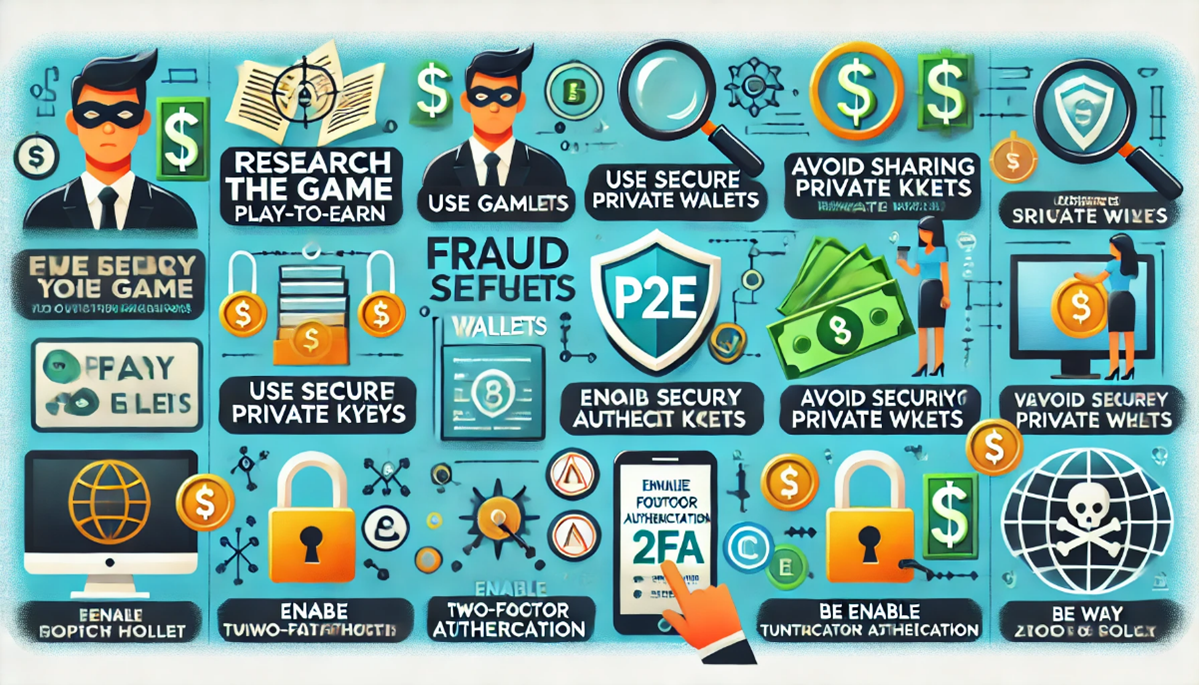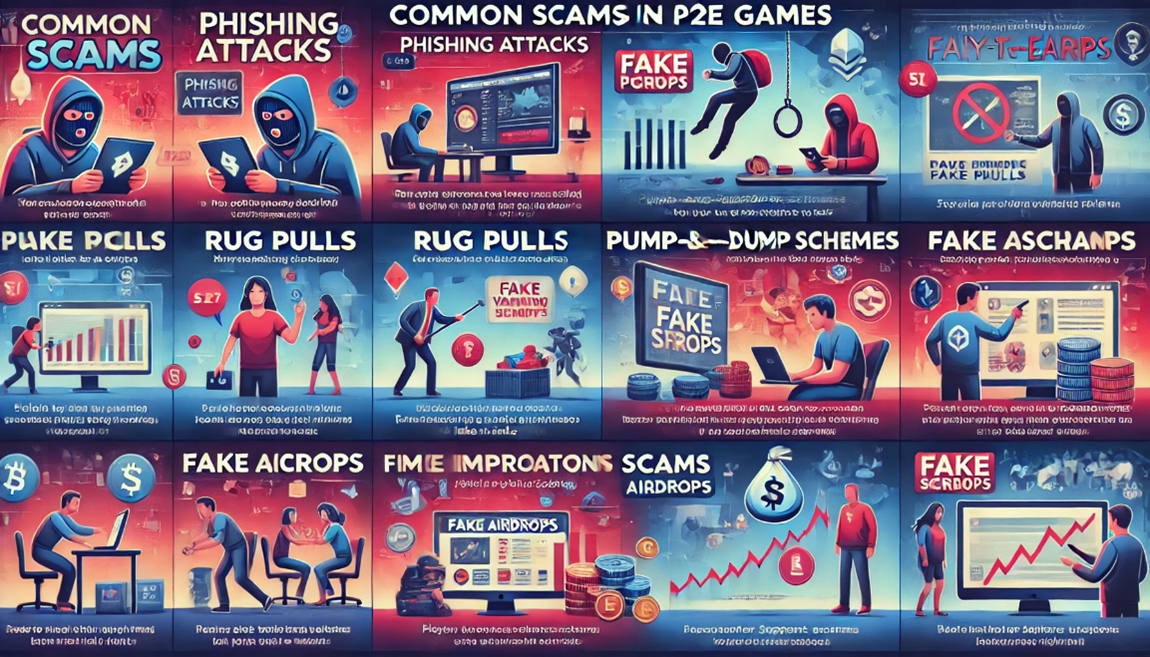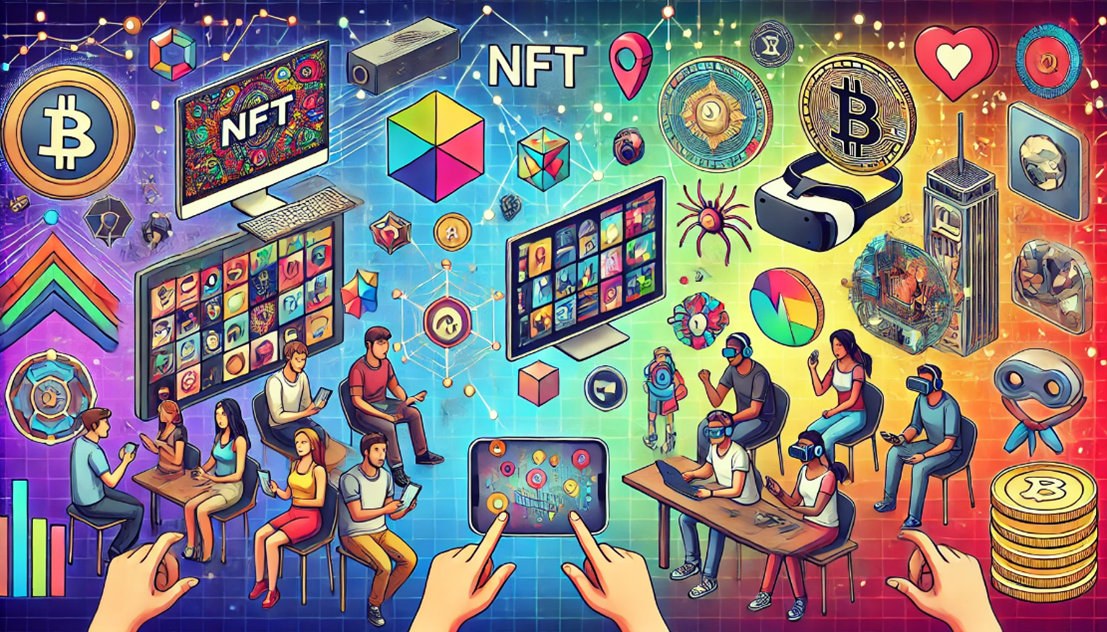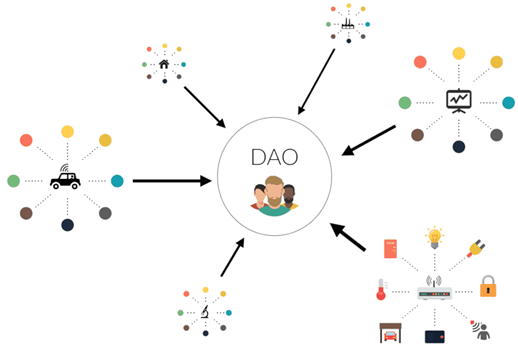Scams and fraud prevention tips for P2E players

Scams and fraud prevention tips for P2E players
by Maximilian 04:09pm Jan 20, 2025

Scams and fraud are unfortunately common in the rapidly evolving world of Play-to-Earn (P2E) gaming. Given that many P2E games rely on cryptocurrencies, Non-Fungible Tokens (NFTs), and decentralized finance (DeFi) models, they are often targeted by malicious actors. To protect themselves, players must stay alert and practice robust security measures. Below are some common scams and practical fraud prevention tips to help P2E players navigate the space safely.
Common Scams in P2E Games
Before diving into how to protect yourself, it’s crucial to understand the types of scams prevalent in the P2E gaming ecosystem. Knowledge of these scams can help you spot red flags early on and avoid being duped.
1. Phishing Scams
Phishing is one of the most common tactics used by scammers. They impersonate legitimate game developers, exchanges, or official game platforms to steal your sensitive information, such as wallet recovery phrases, private keys, or login credentials.
How it works: You might receive fraudulent emails, messages on social media, or fake websites that look similar to the official game or marketplace, tricking you into entering your personal information or clicking on malicious links.
2. Fake Marketplaces and NFT Scams
Fraudsters can create fake NFT marketplaces or auction sites that appear legitimate at first glance. Players who buy or sell in-game assets on these fraudulent platforms often end up with counterfeit items or no items at all.
How it works: Scammers lure you into purchasing NFTs or tokens that don't exist or are of no real value. After your transaction, the assets are never delivered.
3. Rug Pulls
A "rug pull" occurs when the creators of a P2E game or NFT project suddenly disappear with all the funds collected from investors or players, causing the token or in-game assets to become worthless.
How it works: The developers hype up a new game or token, attract a lot of investment from players, and then pull out of the project, leaving it unsupported and its value wiped out.
4. Pump and Dump Schemes
Scammers artificially inflate the price of a game’s token or NFT through misleading marketing, social media manipulation, and coordinated buying efforts. Once the price reaches a peak, the scammers sell off their holdings, causing the price to plummet.
How it works: Scammers create hype around a specific token or asset, encouraging others to buy in. When they sell their holdings, the price crashes, leaving other players with devalued assets.

Fraud Prevention Tips for P2E Players
While the P2E space is rife with scams, there are several precautions you can take to minimize your risk. By staying informed and being proactive, you can help protect your investments and digital assets.
1. Stick to Official Platforms and Websites
One of the easiest ways to avoid scams is to ensure you’re always interacting with official platforms and websites. Fraudulent websites often look identical to the real ones but are designed to steal your information.
Double-check the URL: Always verify the website’s URL to ensure it’s the official game or marketplace.
Bookmark trusted websites: To avoid typing in incorrect URLs, bookmark the official sites of the games you play or the NFT marketplaces you use.
2. Enable Two-Factor Authentication (2FA)
Two-factor authentication adds an extra layer of security to your accounts. It requires a second form of verification, such as a code sent to your phone, in addition to your password. This makes it harder for scammers to access your accounts, even if they have your login details.
Activate 2FA on all platforms: Enable 2FA for any platform that offers it, including exchanges, wallets, and game accounts.
Use hardware wallets: Consider using hardware wallets to store your cryptocurrencies and NFTs. These offline devices are much more secure than online wallets.
3. Be Cautious with Links and Messages
Scammers often use fake emails, messages, and websites to trick players into revealing personal information. Be extremely cautious when clicking on links or responding to unsolicited messages.
Don’t click on suspicious links: Always verify the source of any link before clicking on it. If you receive an unsolicited message, double-check its legitimacy by contacting the official game or platform directly.
Check email senders: Make sure the sender’s email address matches the official domain of the platform you're using.
4. Verify the Legitimacy of NFTs and Marketplaces
When buying NFTs or in-game assets, ensure that the platform is trustworthy and that the assets are genuine.
Look for verified sellers: Reputable platforms like OpenSea provide verification badges to sellers and creators. Always purchase from verified sources.
Research the project: Before investing in a game or NFT project, take the time to read reviews, check the project’s roadmap, and verify the authenticity of the game developers or project team.

5. Beware of Rug Pulls
Rug pulls are one of the most damaging scams in the P2E space. To avoid falling victim, be diligent when researching new games or tokens.
Review the roadmap: Legitimate projects will have a clear roadmap and regular updates. If the project lacks transparency or has unclear goals, exercise caution.
Check for audits: Look for third-party audits of the project’s code and smart contracts. Independent audits help ensure that the platform is secure and not a potential scam.
Stay involved in the community: Follow official channels like Discord, Twitter, or Telegram to stay informed about potential issues or concerns raised by the community.
Conclusion
Scams and fraud are real threats in the Play-to-Earn gaming world, but with proper precautions and vigilance, players can safeguard their digital assets and enjoy the benefits of blockchain gaming safely. Always verify the legitimacy of the platforms you use, enable security features like 2FA, be cautious with unsolicited offers, and educate yourself about emerging threats. By following these tips, you can reduce your exposure to scams and have a secure and rewarding P2E experience.






